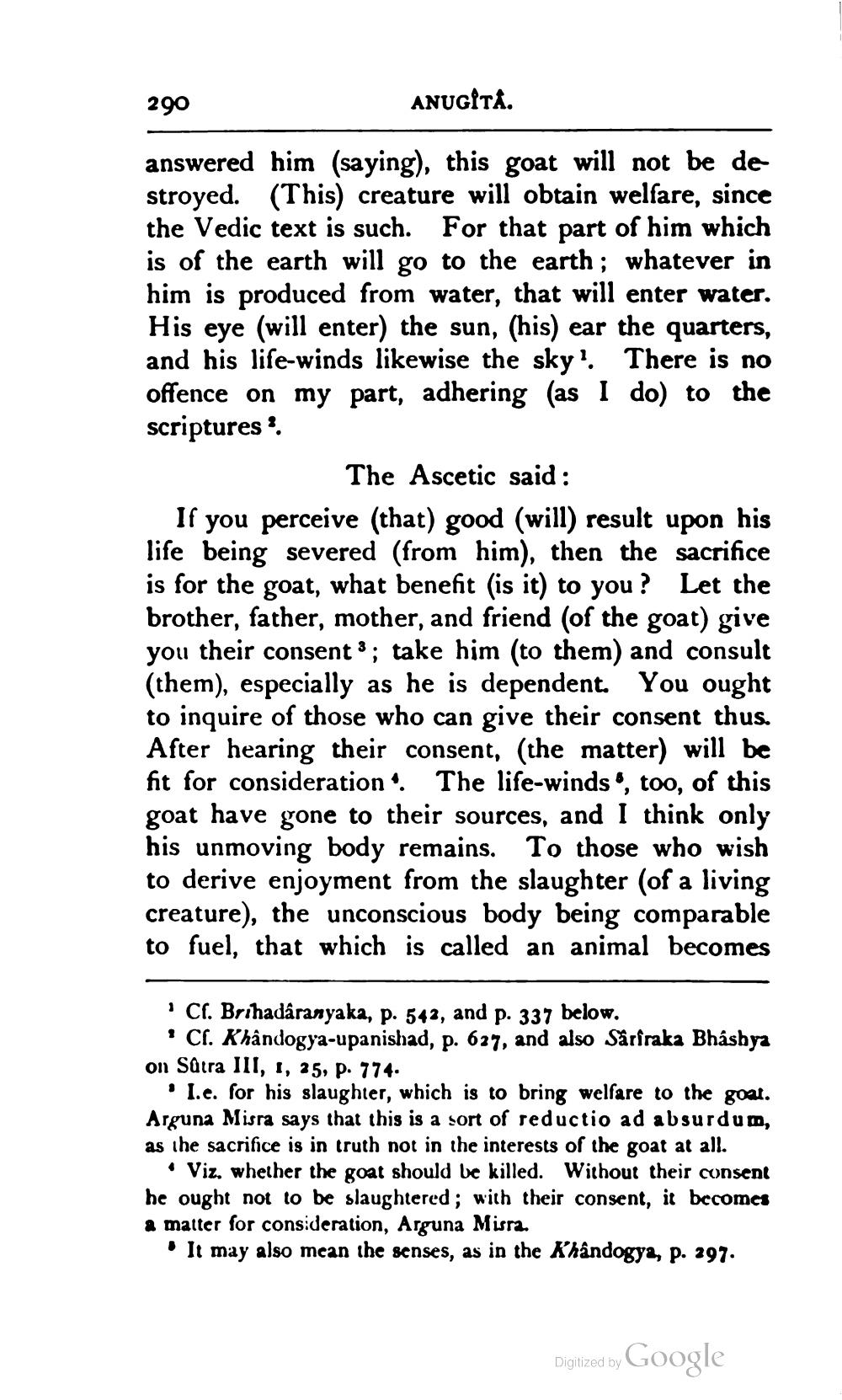________________
290
ANUGITA.
answered him (saying), this goat will not be de stroyed. (This) creature will obtain welfare, since the Vedic text is such. For that part of him which is of the earth will go to the earth; whatever in him is produced from water, that will enter water. His eye (will enter) the sun, (his) ear the quarters, and his life-winds likewise the sky'. There is no offence on my part, adhering (as I do) to the scriptures
The Ascetic said: If you perceive (that) good (will) result upon his life being severed (from him), then the sacrifice is for the goat, what benefit (is it) to you? Let the brother, father, mother, and friend (of the goat) give you their consent 3; take him (to them) and consult (them), especially as he is dependent. You ought to inquire of those who can give their consent thus. After hearing their consent, (the matter) will be fit for consideration. The life-winds", too, of this goat have gone to their sources, and I think only his unmoving body remains. To those who wish to derive enjoyment from the slaughter (of a living creature), the unconscious body being comparable to fuel, that which is called an animal becomes
· Cr. Brihadaranyaka, p. 543, and p. 337 below.
'Cl. Khândogya-upanishad, p. 627, and also Särsraka Bhashya on Satra III, 1, 25, p. 774.
'I.e. for his slaughter, which is to bring welfare to the goat. Arguna Misra says that this is a sort of reductio ad absurdum, as the sacrifice is in truth not in the interests of the goat at all.
• Viz. whether the goat should be killed. Without their consent he ought not to be slaughtered ; with their consent, it becomes a matter for consideration, Arguna Misra.
• It may also mean the senses, as in the K'handogya, p. 297.
Digitized by Google




